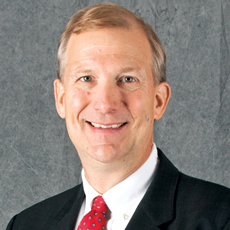
The American Health Care Association opened its annual conference on Thursday with a moment of silence for the tens of thousands of nursing home residents who have died due to the coronavirus.
It was incredibly poignant and appropriate to reflect on the historic havoc the country has endured.
With all due respect, however, it’s time for long-term care operators to start caring even more closely about another vulnerable population: their employees.
Much has been said about “hero” or “hazard” pay for front liners taking care of patients under COVID conditions. But the needs are going to be deeper, experts are starting to emphasize.
McKnight’s own LTC psychology expert Eleanor Barbera, Ph.D., has written numerous spot-on columns recently about the need to tend to facility workers. (Choose from many here.) One of the most poignant was her opening up about her own personal struggles with the carnage in her hotspot hometown of New York City. Any operator would be wise to read her advice-laden pieces and learn from them.
What really amplified concerns about the future of the long-term care workforce for me, however, were recent comments from a pair of other long-term care thought leaders. First, there were troubled thoughts from Harvard health policy professor David Grabowski.
He pointed out in an outstanding article by my colleague Danielle Brown that the industry is liable to be most in danger of seeing its workforce simply fade away as disillusioned, burned out or simply frightened caregivers give up on the profession. The notion isn’t so far-fetched and an already-stressed marketplace would be wise to take heed.
Then, my own wide-ranging interview with AHCA President and CEO Mark Parkinson on Wednesday brought the anxieties home. He’s no stranger to the rough and tumble world of state and federal politics, as well as the frailties of elderly patients in facilities that members or even he might have once owned. But he settled into a melancholy scenario as he discussed the sobering plight of the current nursing home worker.
“It’s staggering that almost 100,000 people have died in long-term care facilities. The human toll of that is just a staggering number,” he began. “There’s the impact it will have not only on those residents and families but also on staff.”
He reflected how employees in “our buildings” don’t always know exactly when a patient would die, but they can often see it coming and then emotionally prepare — for everyone’s sake.
“But with COVID, to have almost 100,000 deaths occur in a very short period of time .. to not have the opportunity or ability to plan and not be able to set up what we try to do in our buildings with hospice and family and friends … there’s going to be an emotional toll on caregivers and it’s going to be significant.”
The death toll, he reminded, already exceeds the number of Americans who died in the Vietnam War — and the dead have come in a much shorter period, and all on American soil.
“That’s something that’s not been talked about,” said the man responsible for many of the nation’s major long-term care talking points. “And I’m not sure what the discussion should be.”
The empathy oozed through the phone connection as we conducted an interview that typically would be held face-to-face at AHCA’s annual meeting. His point was clear: This is a problem silently eating into the core of the long-term care workforce. The profession is primed for a post traumatic stress disorder ward all its own if it’s not careful.
The message seems clear, for any stakeholder. This is an urgent time to act on behalf of the mental and emotional health of the nation’s long-term care worker — before COVID-19 claims even more unsuspecting victims in ways they hadn’t seen coming.
Follow Executive Editor James M. Berklan @JimBerklan.




